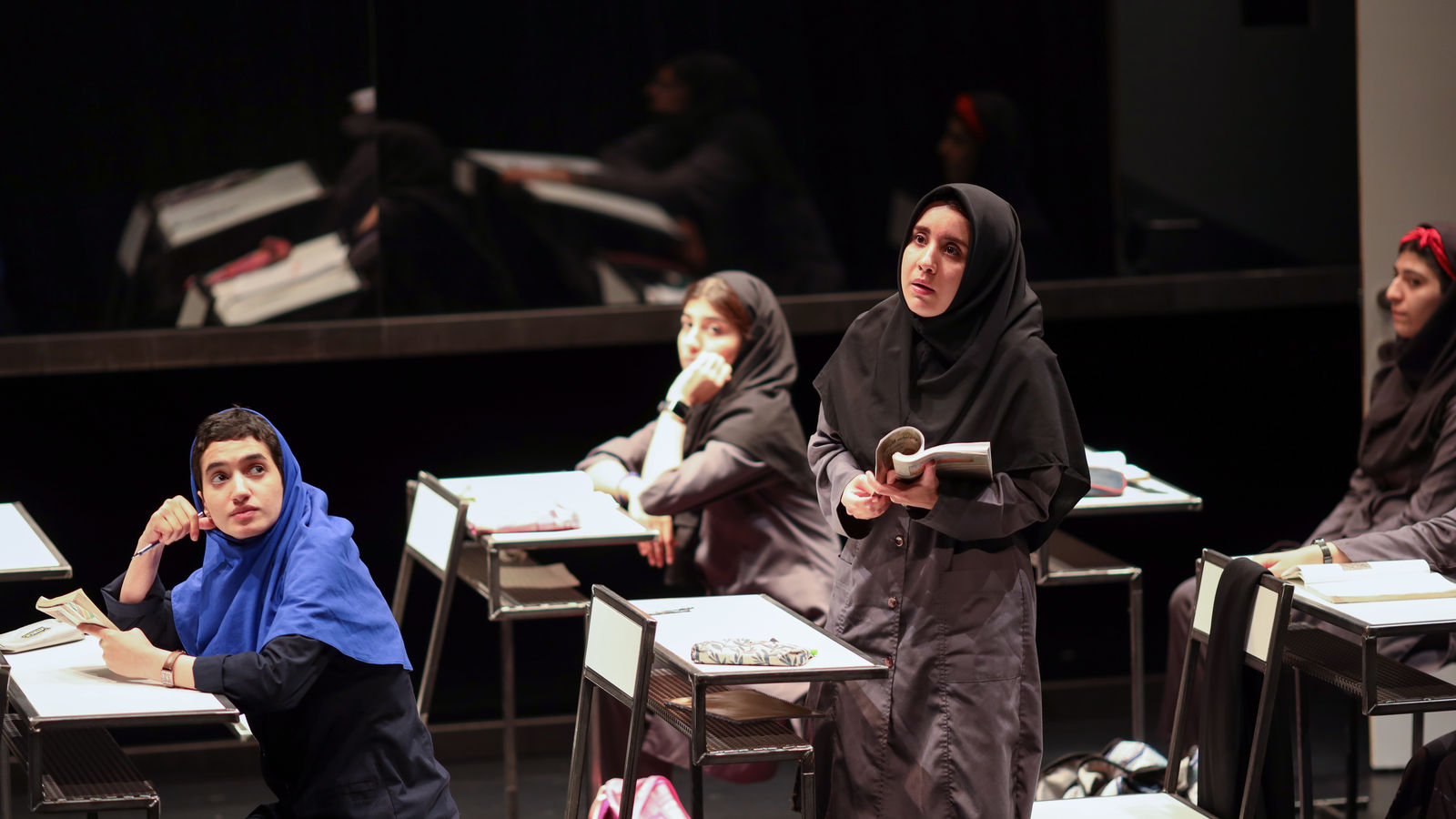
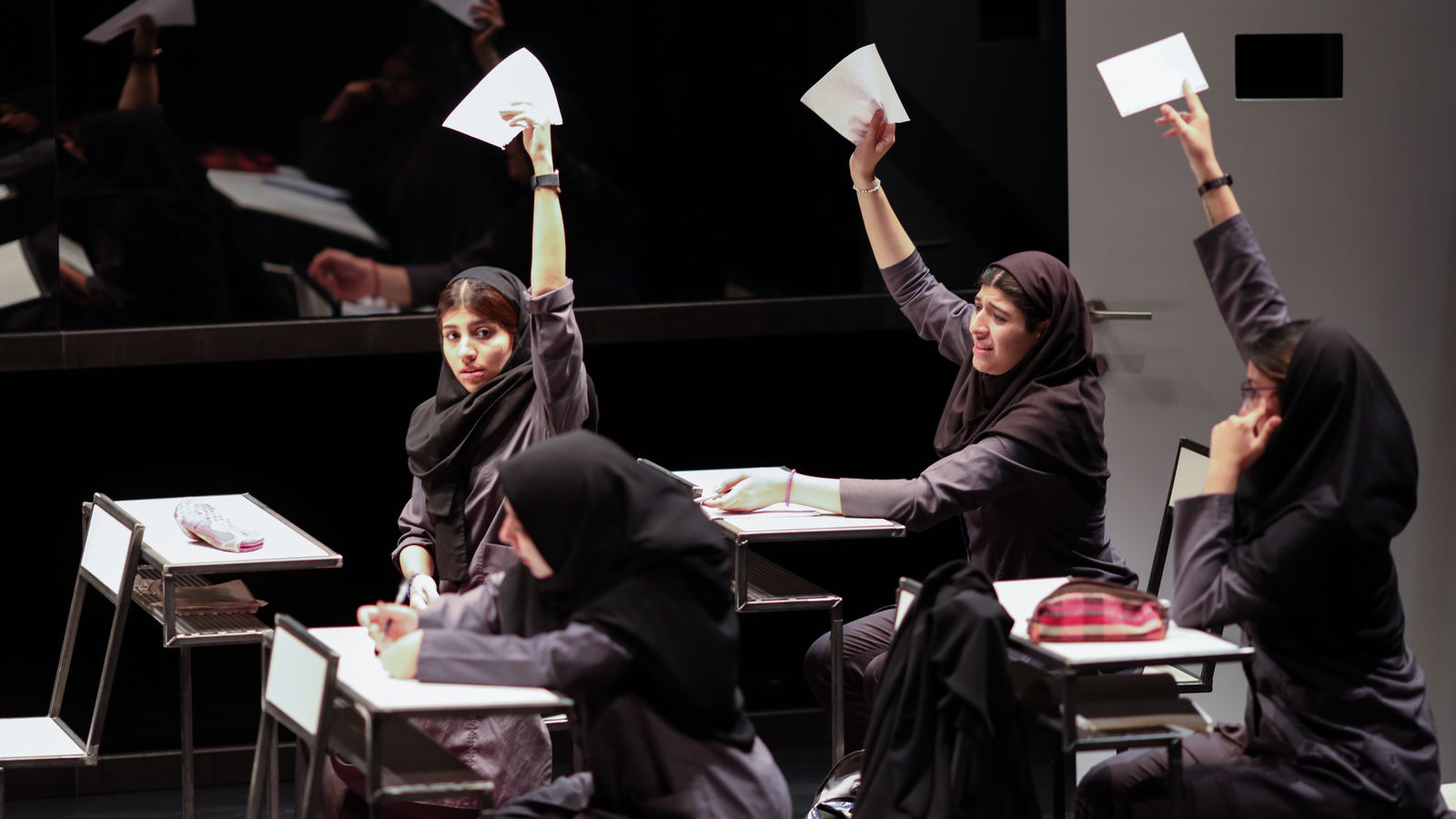
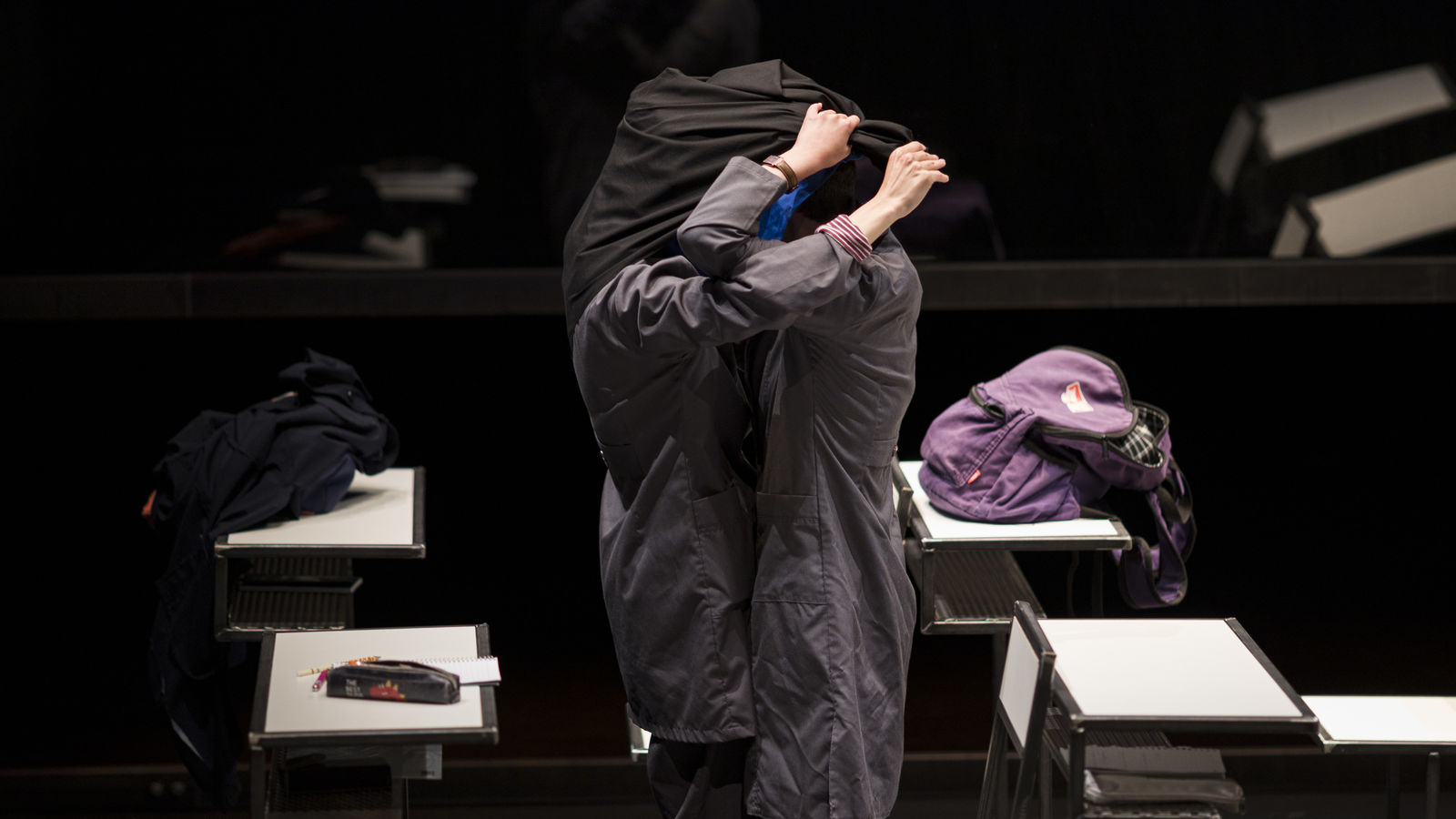
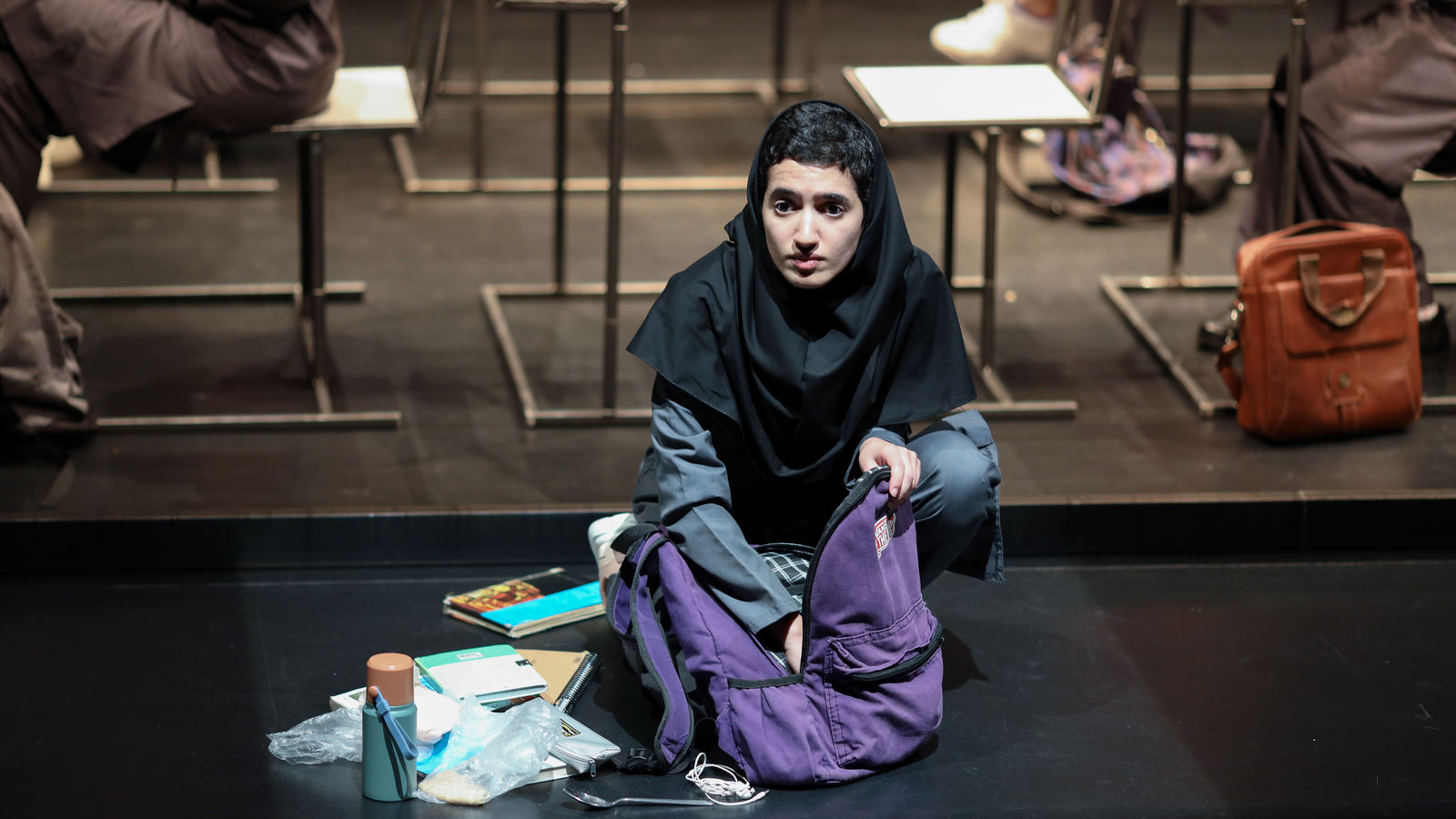
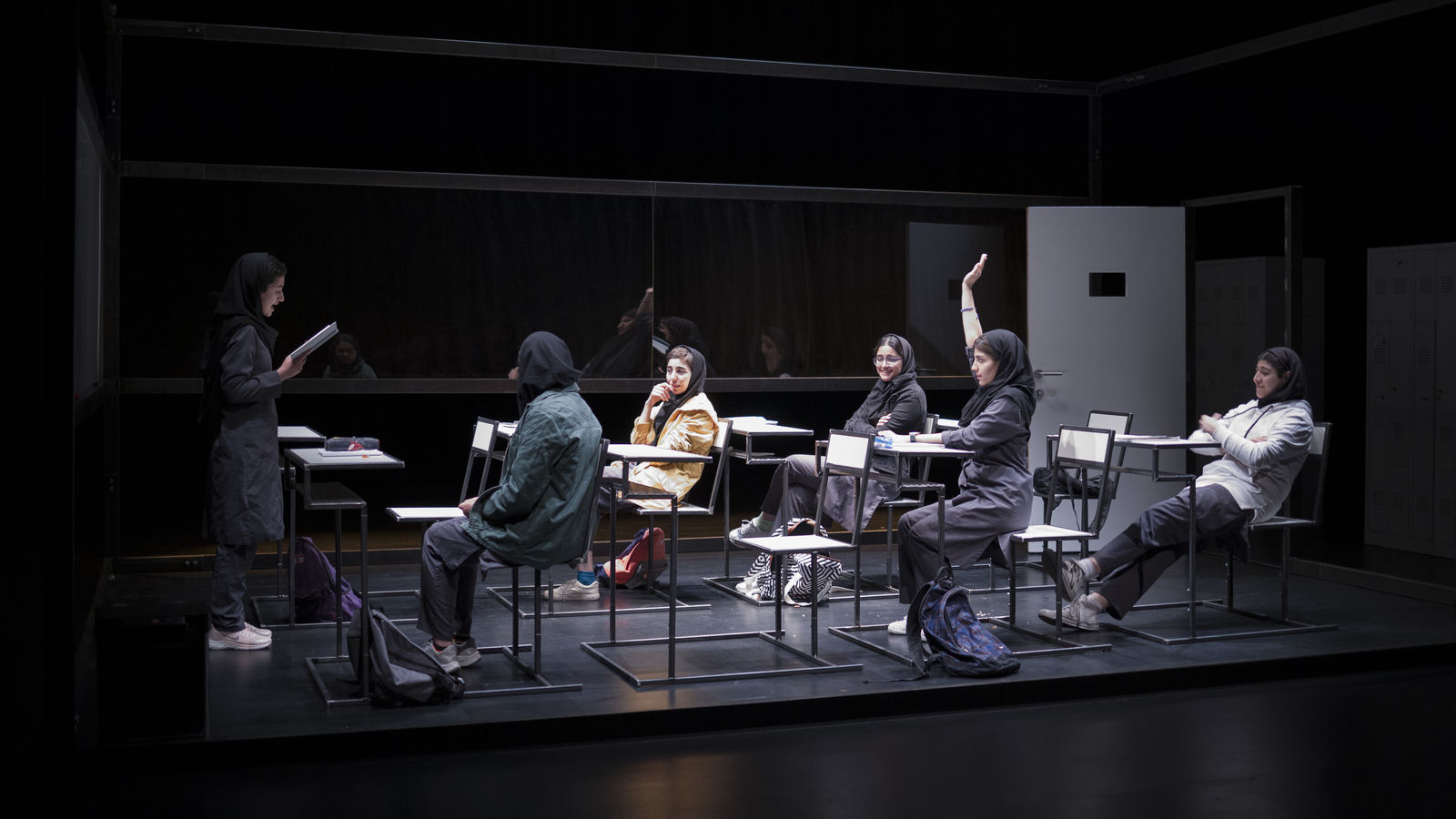
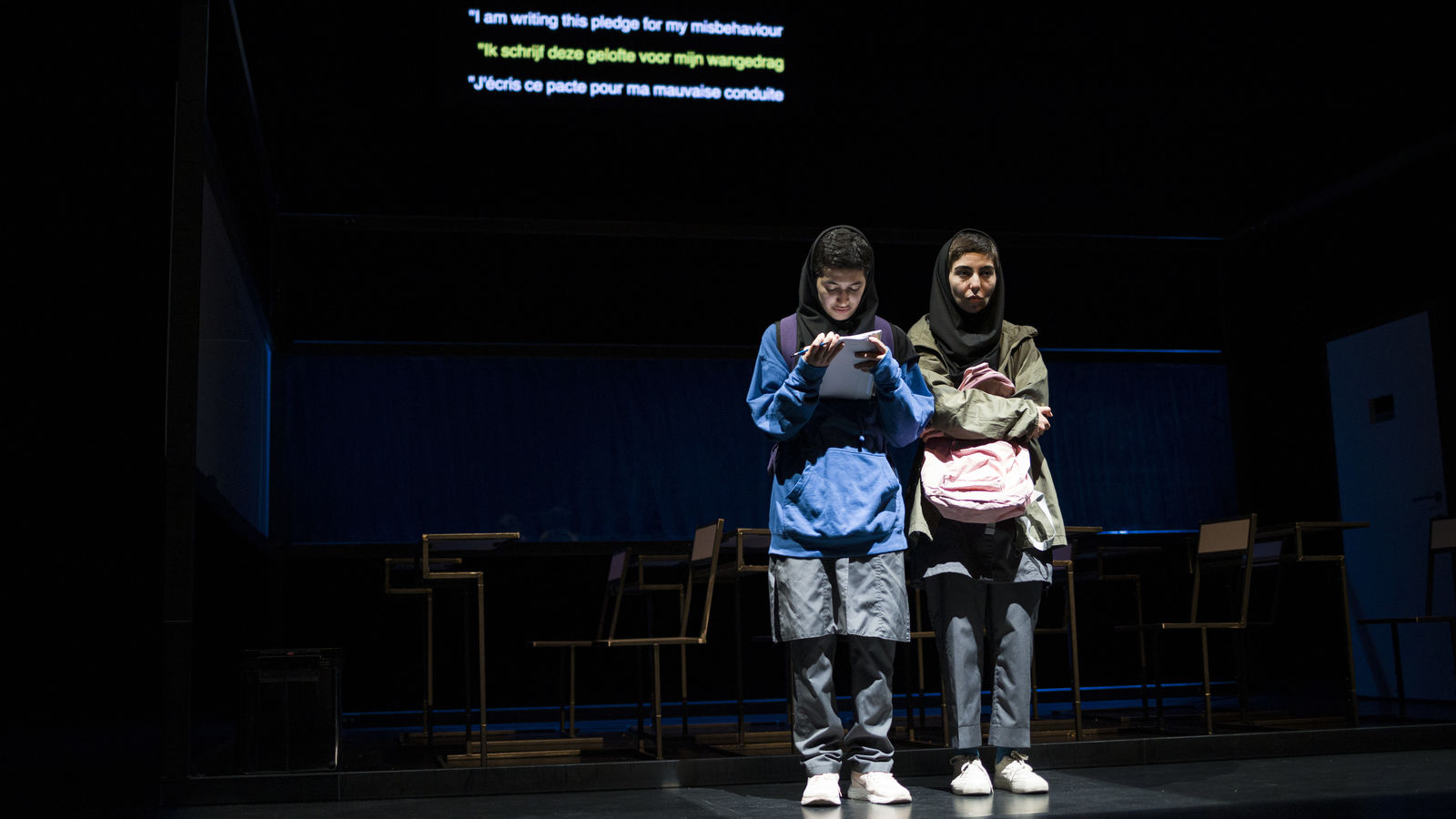
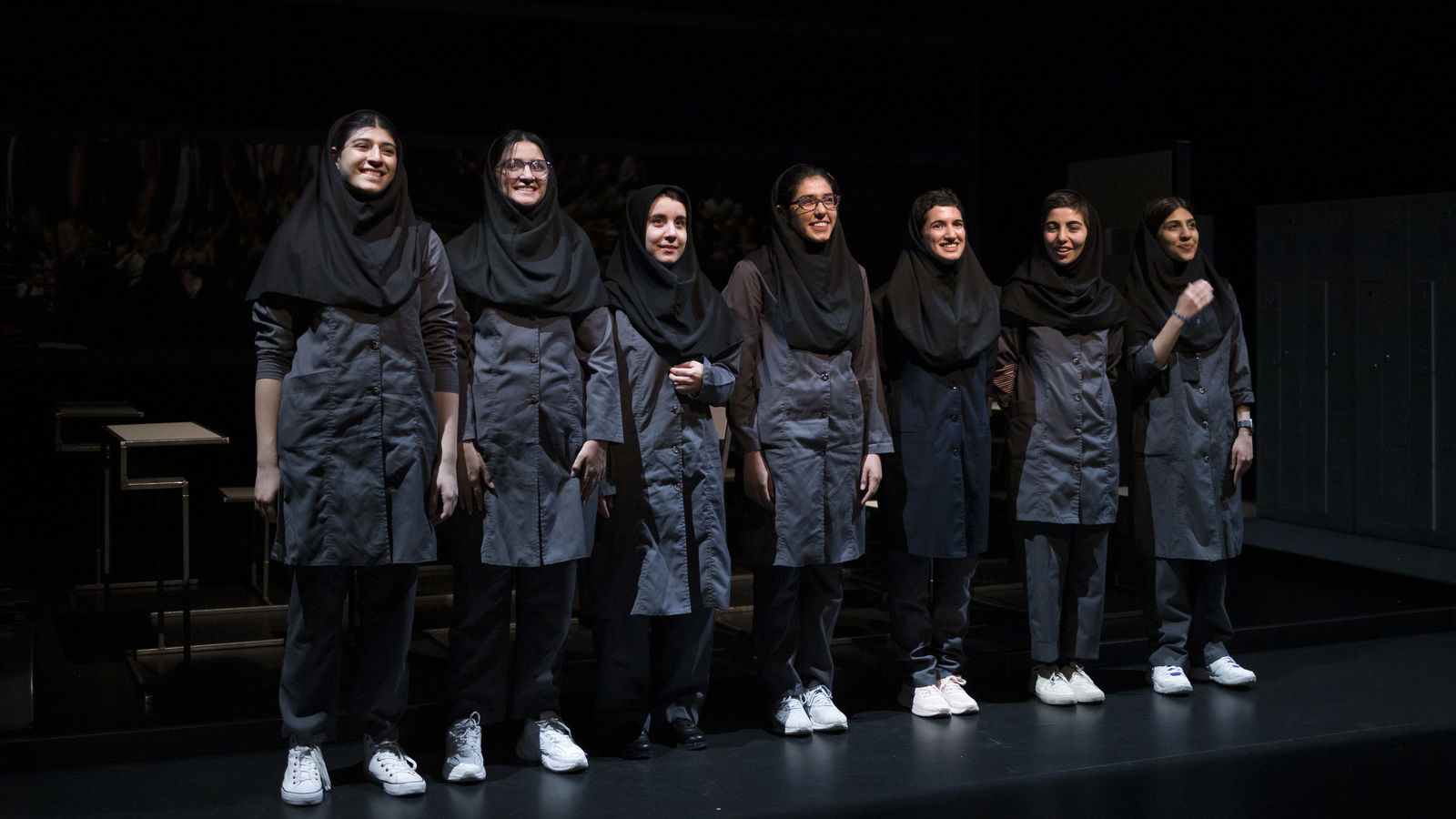
FIND 2023
A Conversation with the New Generation of Iranian Theatre
Parnia Shams brings »Is« to the Schaubühne
by Joseph Pearson
12 April 2023
Premiering at a university theatre festival in Tehran in 2019, the play »است« (»Ast«, or »Is« in English) deals with controversial subjects such as abuse of power in the classroom and accusations of same-sex desire. Four years later, its director, Parnia Shams––born in 1996––sits in Tehran as I ask questions from Berlin. In a few weeks, the distance will disappear when she travels to the Schaubühne to present »Is« at this year’s FIND festival.
Shams reflects on that first performance in Tehran: »We’d been rehearsing, but without a set!« she explains, »It arrived only two hours before the performance. And you can imagine how stressful it was to work with the set structure for the first time in that way, diving headlong into it just before the show premiered as part of the festival program. I just panicked. I was so stressed that I locked myself into the control booth, where we operate the lights, and said: everyone needs to leave, now!«
»After the performance«, she continues, »I was just about to get home when one of the judges from the festival called and said that the show was good and that they were discussing it and that I must come. It was hard to show up, but then I realised how many positive comments were being made about it. Eventually, we won four prizes at the festival: for acting, directing, text… and the set!«
Shams explains how the piece went on to run for a month at a venue in Tehran, and then at the country’s premiere festival, Fadjr, and elsewhere, before touring in Europe, first at Kunstenfestivaldesarts in Brussels, and then at the Piccolo Teatro in Milan.
‘How did you get into the Tehran theatre scene?’ I ask her.
She replies, »My brother, fifteen years older than me, studied theatre at Tehran University. When I was young, I saw how he and his peers worked together, organising rehearsals. Growing up in the community of the younger generation of theatre makers in Tehran made me fall in love with it«.
After a stint acting and then directing her first play (»Tatavor«) in 2018, which won several prizes, she began to work on her second piece. Set in a private girls’ school in Iran, »Is« describes what happens when two girls are accused of having a friendship that is deemed »abnormal«.
Parnia Shams tells me, »The show was developed in 2018 while I was still a university student. Most of my actors were just out of high school themselves. The actors needed to be close to their high school experience. I only had a view on this from the outside, and I wanted those closest to it to give the piece its feeling of authenticity«.
»How did you write the text?« I ask.
»We had no final text until the last rehearsal«, Shams replies, »Instead, we workshopped together the actors’ experiences––and memories––to create the show. We improvised sketches and recorded the rehearsals––four or five hours each––and from these recordings of trying things out, I started writing each scene for the performance. Except there were a few scenes that I knew I wanted from the beginning: I already had the basic idea of doing a play about girls needing to apologise to grownups for something they did not do because they did not want to be expelled«.
»But the figures of authority are absent from the performance––« I observe.
»Yes, there were two reasons not to include adult characters, such as school representatives, in the production«, she tells me, »I had the feeling that if they were there, the scenario risked being clichéd. But the second reason is that the story is about the enforcers of violence and repression. Not having them there could show the violence more. It is heightened by excluding them. Through the work of the actresses, you feel their presence––they act differently among themselves depending on whether the adults are there or not, and this difference makes the enforcers’ power felt more deeply«.
»The result is very naturalistic«, I suggest, »But I wonder how you achieve this. The thing about naturalism on stage is that there is nothing natural about it: it is also a conceit––«
She replies, »Yes, but this transformation was much more straightforward than you could imagine. I chose to work with people who were not very professional, but we shared very intimate workshops. I wasn’t that professional either but craved to create a space where everyone could be present and feel welcome. The dynamic between the performers worked so that everyone felt the piece was their own. And this combination of atmosphere, communication, and relationships meant that when you put it on stage, it became something of its own too«.
I ask how the reception abroad was different than at home.
»It’s a good question. Our actors are dressed in headscarves, and this uniform is standard for us in schools. Segregation in schools is also typical for us. But these were more shocking for a European audience, like a barrier that made it more challenging for them to get through to the other layers of the performance. This superficial layer was new and distracting to them, but it was one that I had never thought about or even thought was noteworthy. But the comments we got in Belgium, and later in Italy, were valuable, and I understand that the play sits differently at home than it does abroad«.
»But I imagine there are different pressures at home, especially in the wake of the women’s protests we’ve seen in the past year?« I suggest, thinking of the wave of demonstrations that shook Iran last autumn in the wake of Mahsa Amini’s death in police custody.
»This was something we were discussing in rehearsals. How would our play be if we did not have to think about the possibility of being censored or if we didn’t need to think about making it acceptable to a public audience (because the authorities do check our performances)? In fact, I don’t think it would be much different: we would still be talking about the same subjects, pressures, the same higher power in the school system, the same »eye«. In terms of pressure, what immediately comes to mind is how Covid has hit the Iranian theatre community and hit hard. Theatres were the first place to close and the last to open. And then, once the women’s movement started, theatre productions were again stopped. Due to this unrest and the country’s economical turbulence, we can see a declining trend in theatre production in Iran, as people’s first concern is just being able to work and make a living«.
Shams continues, »But right now, we are also seeing a surge of underground performances because people do not want to continue creating work inside the system anymore, because of censorship. Many of them still love to create and occupy a space, and in these underground performances they do not follow the head coverage rules, and they can say what they want. It’s not too public, as you can imagine. It’s a smaller audience but that’s what they want it to be«.
»است« has its German premiere on 26 April 2023.
With thanks to Raha Rajabi for translations from Farsi to English.
است (is)
(Teheran)
by Parnia Shams and Amir Ebrahimzadeh
Director: Parnia Shams
Globe
Premiered on 26 April 2023
Mit dem Aufruf des Videos erklären Sie sich einverstanden, dass Ihre Daten an YouTube übermittelt werden. Mehr dazu finden Sie in unserer Datenschutzerklärung.
Bei Klick auf die Schaltfläche "Akzeptieren" wird ein Cookie auf Ihrem Computer abgelegt, so dass Sie für die Dauer einer Stunde, diese Meldung nicht mehr angezeigt bekommen.
Pearson’s Preview
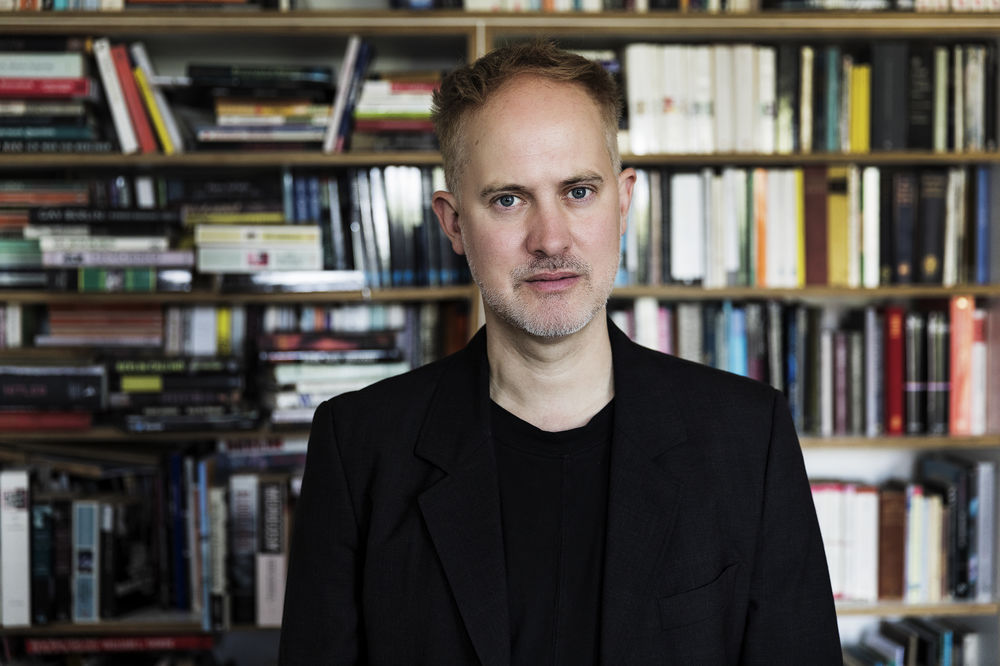
Archive
April 2023
FIND 2023
Nostalgic, Not Sentimental
The Wooster Group as »Artist in Focus« at the Schaubühne
April 2023
FIND 2023
Kuro Tanino at the Sea’s Edge
»Fortress of Smiles» at the Schaubühne’s 2023 FIND Festival
| Page 1 of 10 pages |
